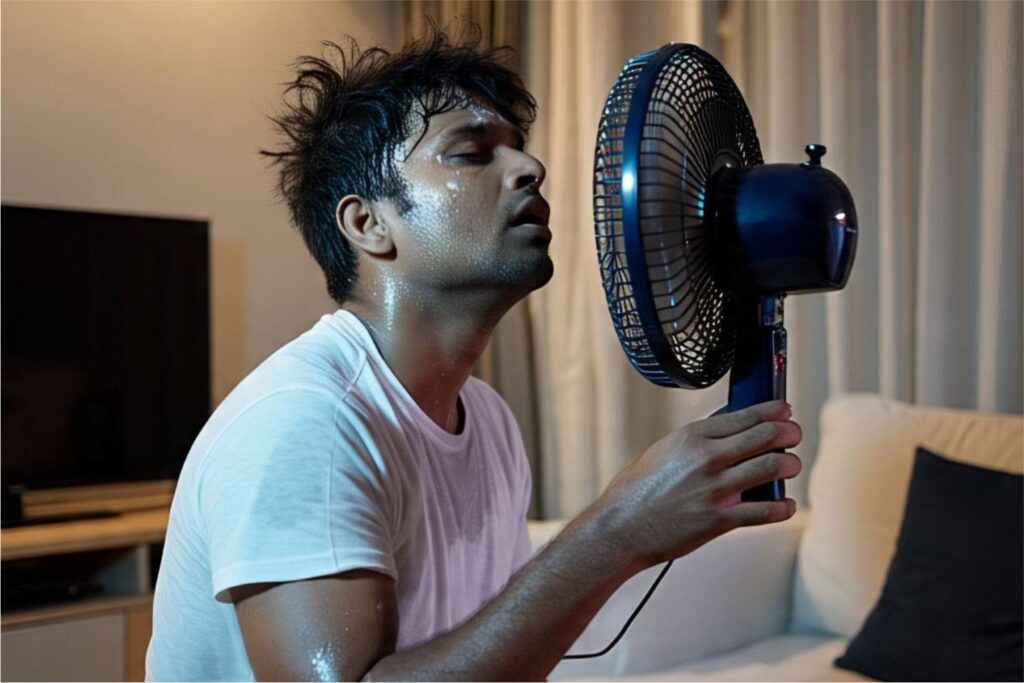
Amid the heatwave across India, a new study warns that unusually warm nights are increasing faster than daytime heat. Hot nights make it harder for people to recover from the day’s heat, putting more stress on the body and increasing health risks.
Published by the Council on Energy, Environment and Water (CEEW), the study also highlights that 57% of Indian districts, home to 76% of the population, now face a high to very high heat risk.
Very warm nights and very hot days are defined as periods when minimum and maximum temperatures rise above the 95th percentile threshold, i.e., what was normal for 95% of the time in the past.
Also Read | India sees spike in heat days risking pregnant women’s health: Report
“Our analysis shows that warm nights are rising more rapidly than hot days,” said Vishwas Chitale, Senior Programme Lead at CEEW. “This is especially dangerous because the human body needs cooler nights to recover from daytime heat.”
The study analysed climate data across 734 districts over 40 years and found that cities like Mumbai now experience 15 more very warm nights per summer than a decade ago. Bengaluru has recorded 11 additional warm nights, followed by Bhopal and Jaipur with 7, Delhi with 6, and Chennai with 4.
The trend is particularly acute in urban areas with heat trapped by concrete, dense buildings, and limited green spaces. The effect is most pronounced in Tier I and Tier II cities with over a million residents.
The study revealed that this trend is not limited to India’s traditionally hot regions. Himalayan districts such as Jammu & Kashmir and Ladakh now experience over 15 moscorchingdays and warm nights each summer. The increase poses serious risks to fragile mountain ecosystems and communities unaccustomed to such heat.
The study also indicated that northern India’s summer humidity climbed from 30-40% to 40-50% in the last decade, worsening heat stress. Furthermore, early mornings now feel hotter due to humid conditions. Cities like Delhi, Chandigarh, Jaipur, and Lucknow have seen a 6 to 9% rise.
The study also revealed that India could lose up to 35 million full-time jobs and 4.5% of its GDP by 2030 due to heat stress, which particularly affects outdoor labour sectors.
Experts say outdoor workers, pregnant women, the elderly, children, and people with chronic health conditions are at a higher risk of heat exhaustion and stroke.








